"SLC21/WK3: Introduction to Basic Electrical Motors, Switchgear, and Motor Starters"
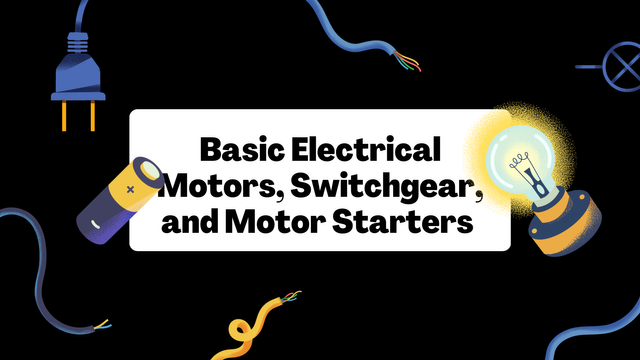 |
|---|
A
Write two differences between current and voltage.
Here I have shared the two key differences between current and voltage.
Current
This is the flow of electric charge through a conductor, which is measured in amperes (A).
It is typically donated by
Iand measured using an ammeter that is connected in series in the circuit.
Voltage
This is the main difference between the two points in a circuit, which we have learned in our previous post, that drives the current and measures it in volts (v).
Voltage is typically donated by
Vand it is measured using a voltmeter that is connected across two points in the circuit as we learned previously.
Write two differences between AC electricity and DC electricity.
Here I have also shared two key differences between AC
electricity and DC electricity.
AC electricity
In AC electricity current is changed often which means it can flow back to the AC or electric suppliers
It is mostly used for power supply in businesses and homes, which is generated by power plants and transmitted over long distances.
DC electricity
In DC electricity the current only flows in a single constant direction.
It is mostly used in battery-powered devices, such as our smartphones, flashlights, etc since it provides a stable and continuous voltage.
Write the difference between an AC motor and a DC motor.
AC motor
AC motor operates using alternating current power where the direction of the current changes. Also, it is mostly used in applications where the power supply is high and efficiency is needed like household appliances.
Secondly, it has a simpler construction and it needs less maintenance because it doesn't use a brush.
DC Motor
DC motor, operates using direct current power, where the current flows (passes) in a single direction. It is mostly used in applications that need (uses) precise control.
It usually includes a commutator and brushes, which can lose out over time, meaning it requires more maintenance.
Write two main differences between DOL, Star-Delta, and forward reverse starter.
Based on the Starting method and motor control
DOL Starter: Full voltage is directly applied to the motor resulting in a high current which is more suitable for small motors.
Star-Delta Starter: The Motor is connected in a star configuration to minimize current and voltage, then switches to a delta configuration for norm operations. It is suitable for larger motors.
Forward Reverse Starter: It allows the motor to run in reverse directions and forward direction as well.
Based on Application and Complexity
DOL Starter: is cost-effective and simple which is best for basic applications that don't have direction control or speed.
Star-Delta Starter: It is very complex and it is used in applications that require a controlled startup to maximize electrical and mechanical load.
Forward Reverse Starter: It is used in applications hoists, lifts, and conveyor belts where the direction of the motor is important meaning it requires more additional wiring and control circuits.
B.
Write the names and pictures of the electrical switchgear used in your home.
The below electrical switchgear is what is been used in my home.
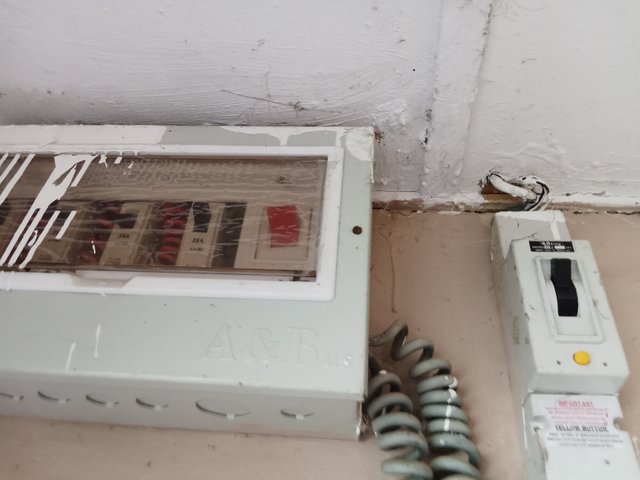
Distribution Board is the name of the electrical switchgear that is used in my home, and the box on the left-hand side which is labeled with switches 20A, 32A is the distribution board that distributes electrical power to various circuits within the building in my home. It distributes electricity to four buildings (rooms).
Circuit Breaker or Isolator Switch is the device on the right-hand side with a black handle and a yellow indicator is a circuit breaker or an Isolator switch.
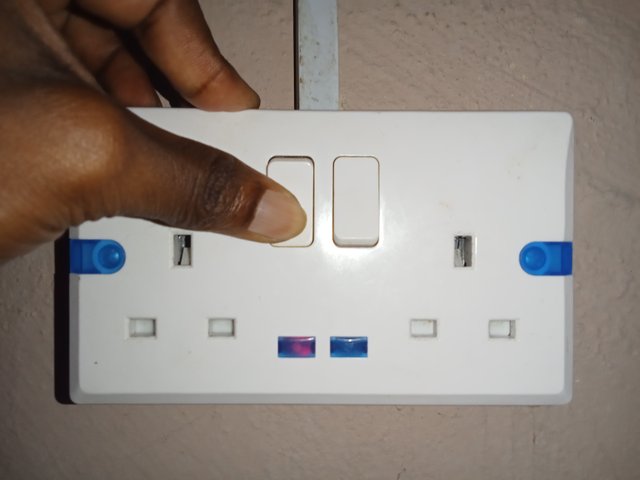 | 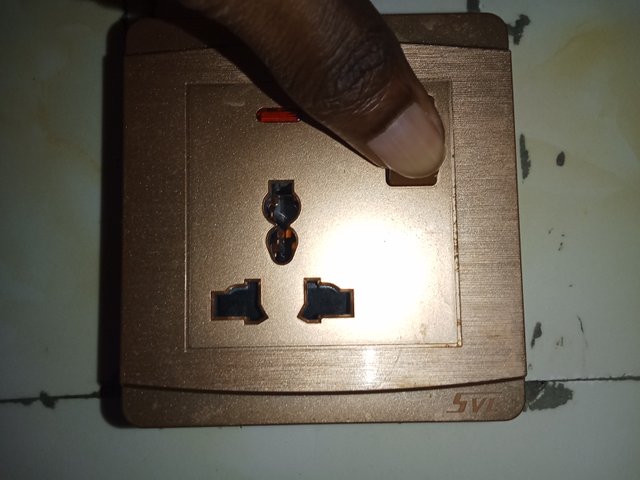 |
|---|
These other two electrical switchgear are the ones in my room which is called double socket outlet with switches. It allows two devices to be plugged in simultaneously and the switch controls the power supply to each socket, allowing me to turn each connected device on or off individually whenever I need them. The other switch is the switch that is inside my kitchen.
Make the specifications of the motor shown below.
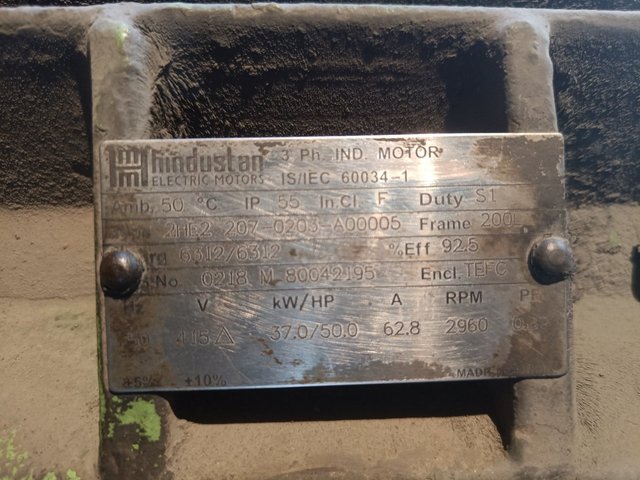 |
|---|
| KW = | 37.0 kW |
|---|---|
| HP = | 50.0 HP |
| RPM = | 2960 RPM |
| Ampere = | 62.8 A |
| Voltage = | 415 V (Delta connection) |
| Hz = | 50 Hz |
| PF = | 0.89 PF |
Find out the current of your home's 220-volt, 5-HP motor. (Follow Figure 2.3)
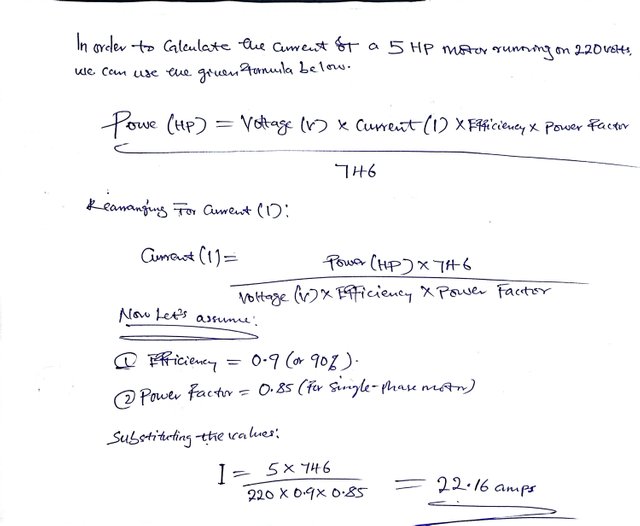
D.
Draw the power circuit of the star delta starter and name the devices used. (Follow Figure 2.5)
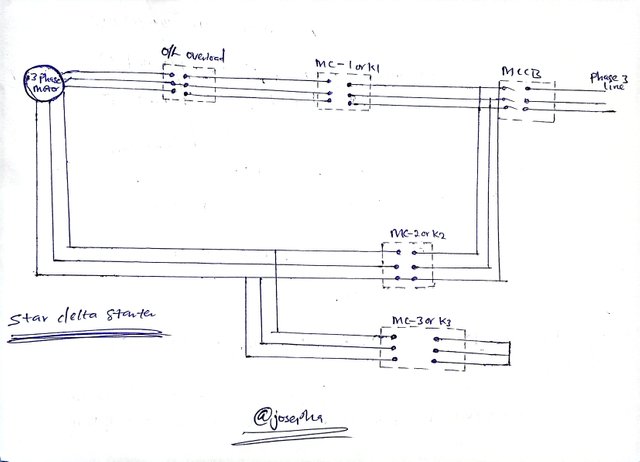
Based on the provided image above, the power circuit of a Star-Delta Starter is what is drawn.
| Phase-3 motor: | It is being controlled by the Starter. |
|---|---|
| Overload Relay (O/L): | This protects the motor from overheating or overcurrent. |
| Main Contactor (MC1): | This is the connector that connects the motor to the phase 3 line. |
| Star Contractor (MC2): | This is the contactor that connects the motor windings in a star for the starting of the motor. |
| Delta Contactor (MC3): | It connects the motor windings in a delta configuration after the startup. |
| Moulded case circuit breaker | This is what protects the entire circuit by breaking the connection if there is an overcurrent or short circuit. |
I am inviting; @dove11, @simonmwigwe, and @lhorgic
Cc:-
@mahadisalim
You have presented the differences between current voltage, AC power and DC power and AC motor and DC motor very well in your post. You have rightly mentioned the operation and maintenance of these. Your point is very well presented. (1.9)
You have presented several pictures of electrical switchgear in your home. You also tried to mention how it works. Electrical switchgear provides protection and distribution of electrical lines. A circuit breaker serves to isolate and activate the line. Your presentation was very good. (2)
You have mentioned the values in the nameplate shown in the figure very correctly. Here you have recorded the rpm, volts, current, power factor, frequency, horse power of the motor very accurately.You have determined the current in a 5 horsepower motor at your home. In this case your formula for determining the current in a single phase motor should be, Power divided by voltage times cos theta. You will be able to draw current in the motor very easily without adding efficiency. As per formula mentioned in our course. (2)
The names of the devices are presented very nicely according to your drawn circuit. The connections of the circuits and devices you mentioned are clear. Also made your following description more simple and clear. (3)
Comment/Recommendation
**Scores| 8.9/10
Great to hear, thanks for presenting the basics in such a way. By doing this, there is an opportunity to learn a lot for the newbies. Best wishes for the contest dear.
Thank you for your support.